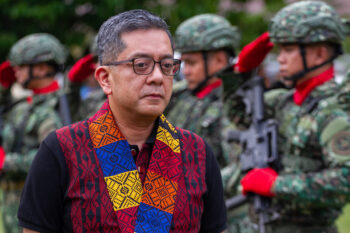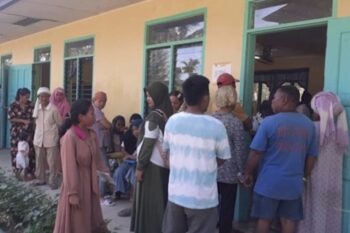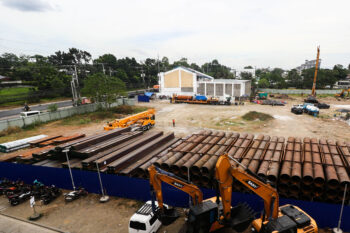
COTABATO CITY (MindaNews / 27 August) — How can we address a problem if we don’t tackle its roots? If short-term solutions are being used as band aids in attempts of solving deeply rooted issues, students will inevitably face a depletion of mental health and a downgrade in academic performance.
For two years, the confinement at home and the inability to interact socially with peers are causing a dilemma that affects major aspects of every student’s life. Due to the adverse impacts that cause damage to mental health, it is high time for Filipino students to return back to full face-to-face classes.
One of the most common issues being encountered that is draining mental health is the “Zoom Fatigue.” It is the feeling of exhaustion that is experienced following a video conference call. In a recent interview with Dr. Brian Wind, a Psychology Professor at Vanderbilt University, “When we’re on Zoom, the brain has to work overtime to process information. It isn’t picking up the social cues it’s used to identifying. This places stress on the mind and uses up a lot of energy.”
The usage of these technologies to an unhealthy extent has also been linked to developmental delays and has been shown to cause disruptions in one’s normal sleep routine.
The suspension of physical classes, the disruption of regular daily routine, and the reduction in the amount of social support being received places an additional burden to the mental health of the students. The rigorous enforcement of the restriction of children to their homes makes an already difficult situation much worse.
Furthermore, the online learning environment and the family environment also play a major role in the mental health of the students during online classes. A study entitled “The Hidden Impact of COVID-19 on Children” reported that violence occurred in nearly one-third (32%) of households. According to UNICEF, the Philippine government also saw a 260% increase in online child abuse reports from March-May.
All the aforementioned reasons are contributing factors to the depletion of mental health of the students. According to the World Health Organization (WHO), 16.8% of Filipino students aged 13 to 17 have attempted suicide at least once within a year before the 2015 Global School-based Student Health survey.
There have been two primary solutions as part of the intervention that the schools have taken, and those are webinars regarding mental health and the implementation of academic breaks. The academic breaks provide students with the opportunity to recalibrate from a demanding schedule of responsibilities associated with school, and the webinars provide important help on how to navigate life during online classes.
Having recognized the fact that the solutions being offered provide temporary ease, it is insufficient and not sustainable in order to completely eradicate the threats being posed to the mental health of the students.
Among all other interventions, the most effective is the return of face-to-face learning. The opportunity inequalities between different students are lessened by face-to-face instruction. It is also advantageous since students are given the opportunity to be in classrooms with the primary goal of attaining knowledge and having first hand access to mentors, peers, and resources with less distractions.
Learning is also significantly enhanced by social contact, which is more significant and effective in face-to-face instruction. As Stanford researchers found out, “in-person communications make our brains happier.” Having to go to class with a real teacher is more efficient for students and can make them feel more comfortable interacting with and learning from each other in a classroom setting.
At the end of the day, rather than giving temporary solutions, bringing back face-to-face classes is one of the most necessary routes in order for us to help minimize, if not eradicate, the mental exhaustion and heaviness that students are already carrying within.
(MindaViews is the opinion Section of MindaNews. Batang Mindanaw is the youth section of MindaNews. Somaiya K. Padilla is a youth leader, debater, and journalist with advocacies revolving around poverty alleviation, peacebuilding, and youth empowerment. She is the current Associate Editor of “The Twelth Quill,” the official school publication of the Philippine Science High School -Soccskargen Campus). She hopes to use journalism as a tool in order to reverse the negative stereotypes that have been associated with Muslims and Mindanawons)







